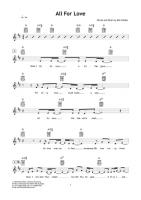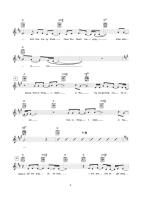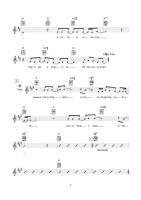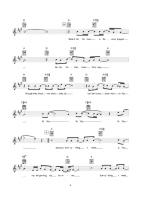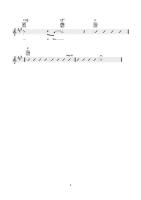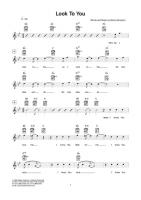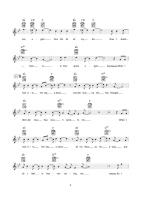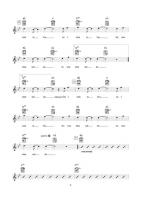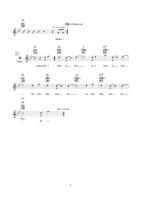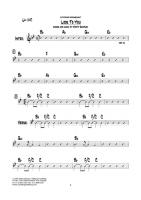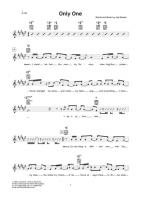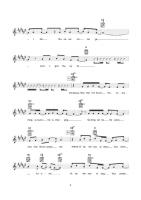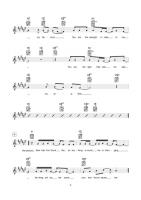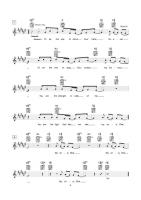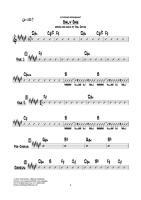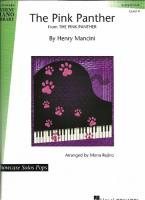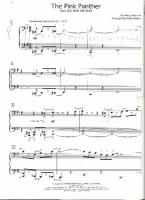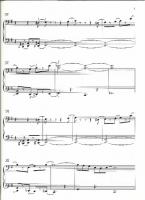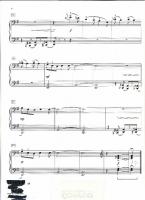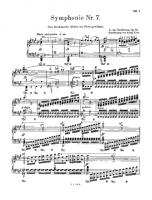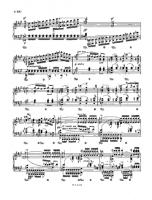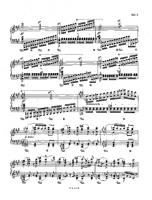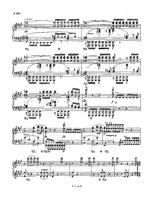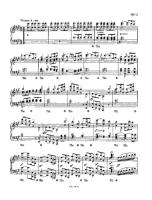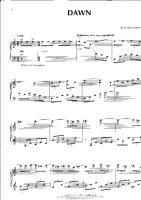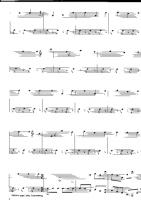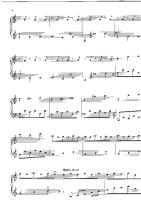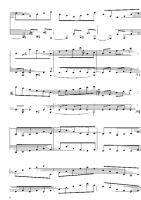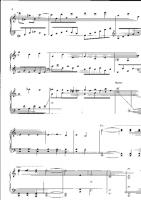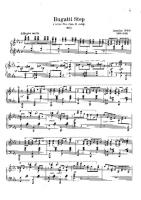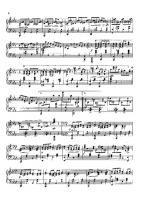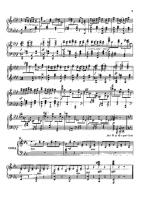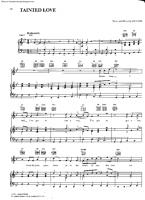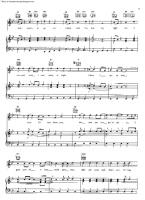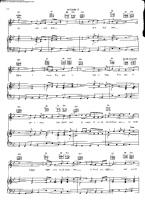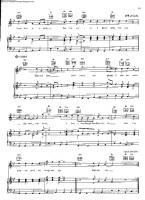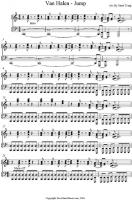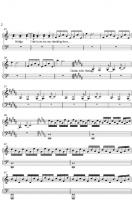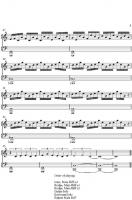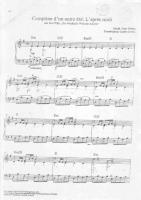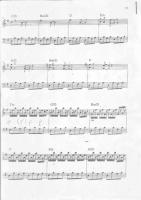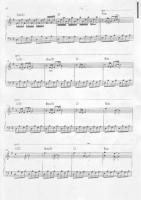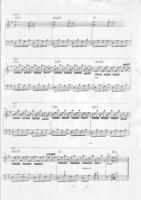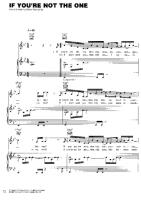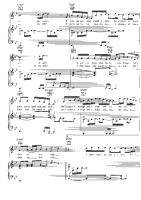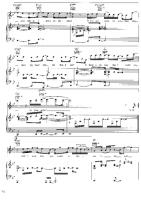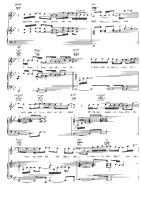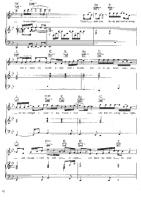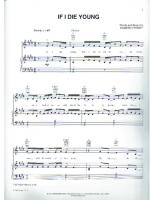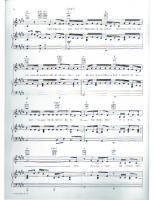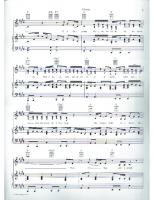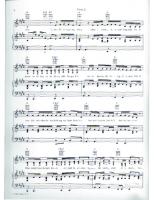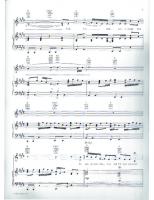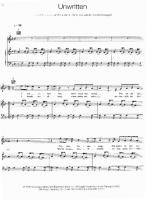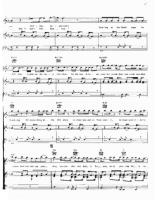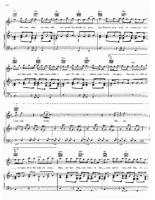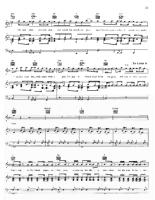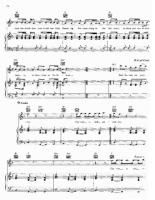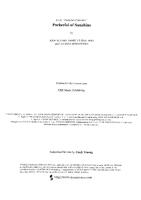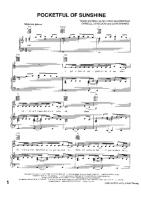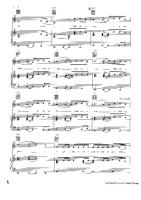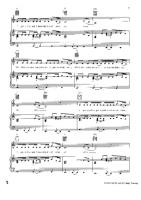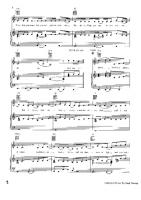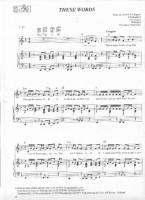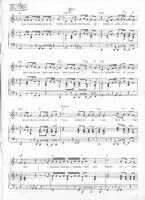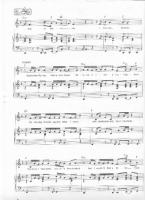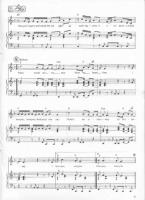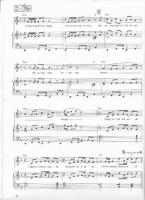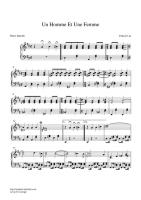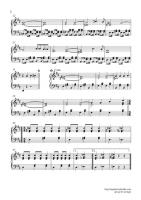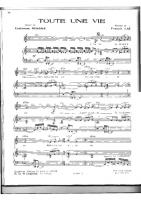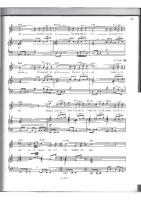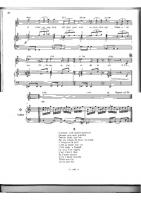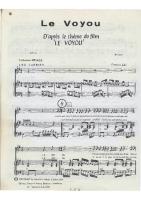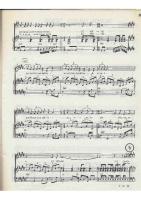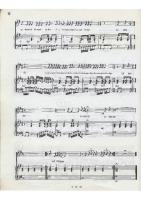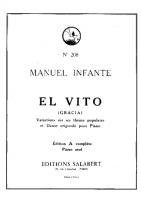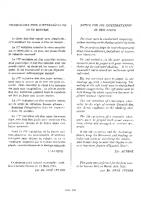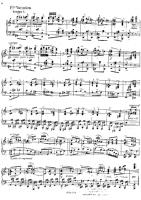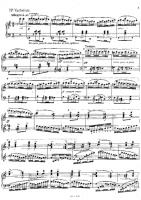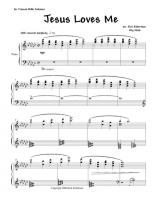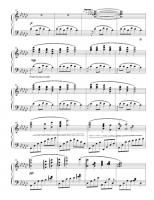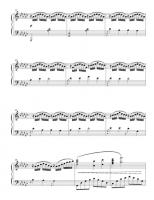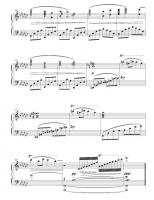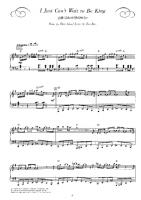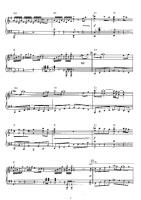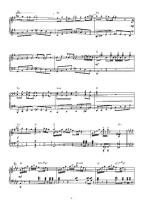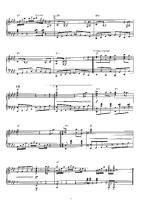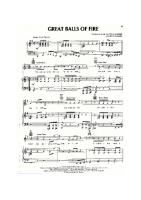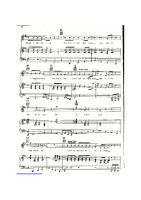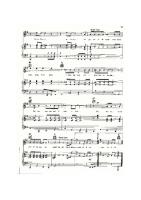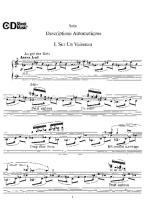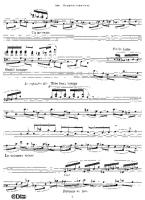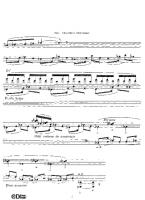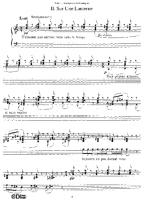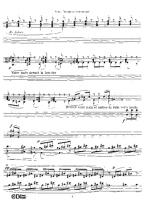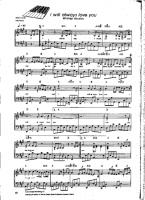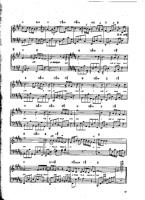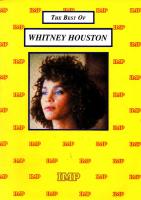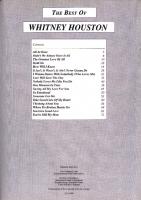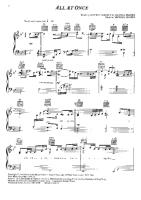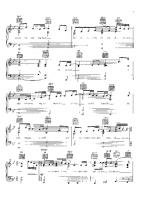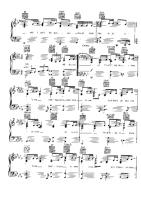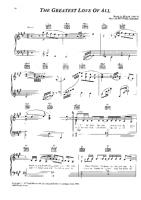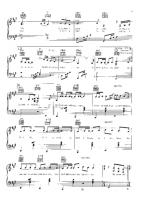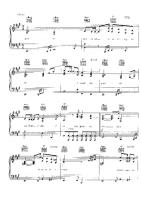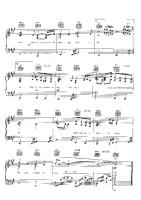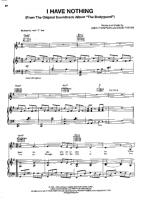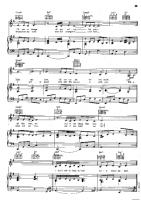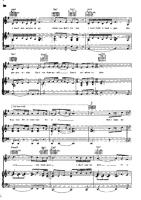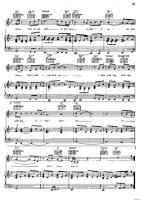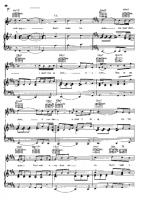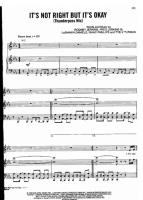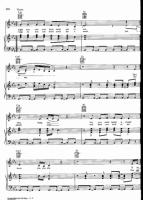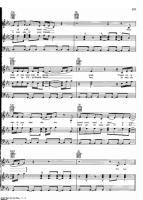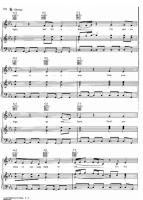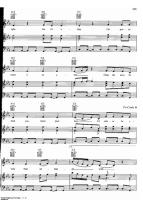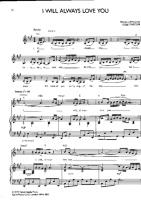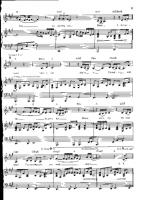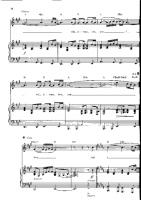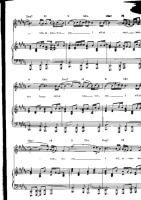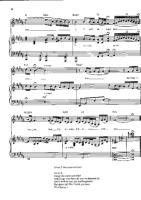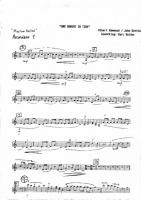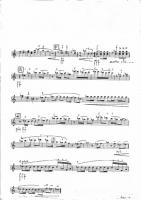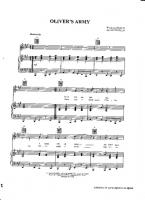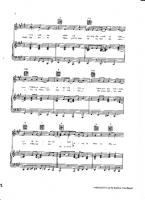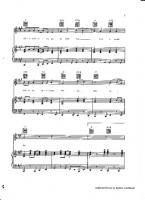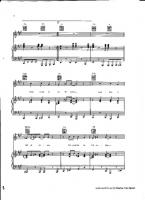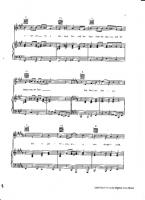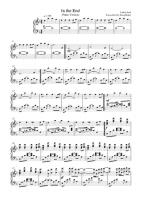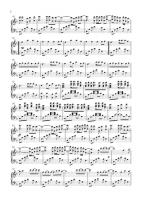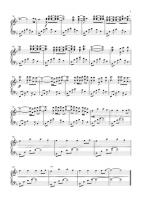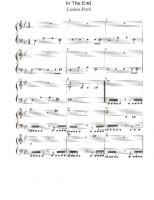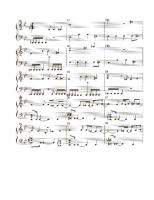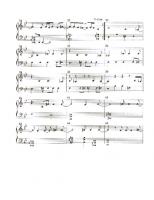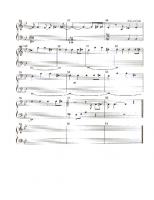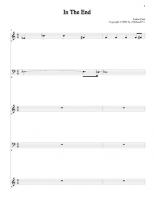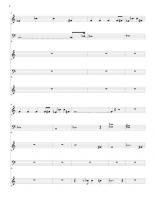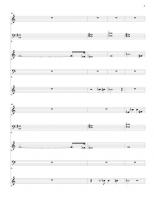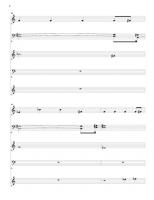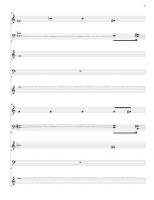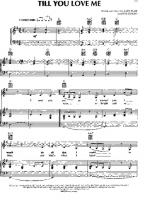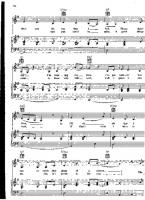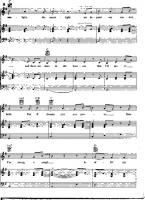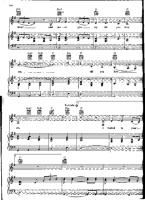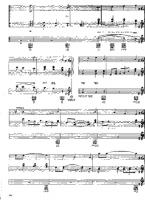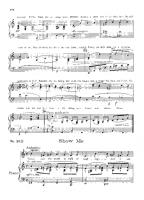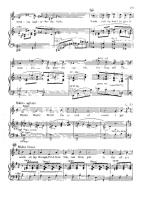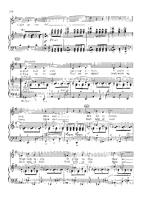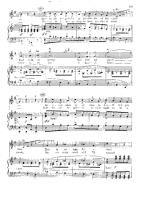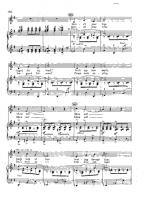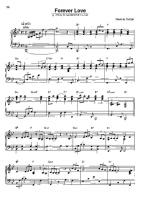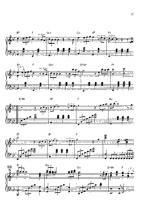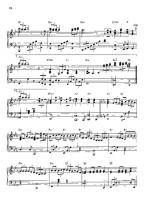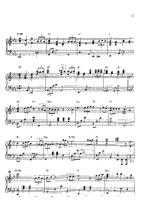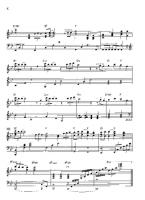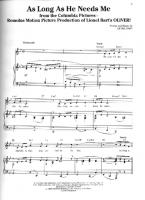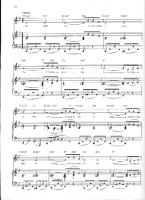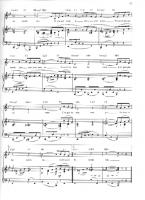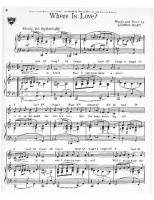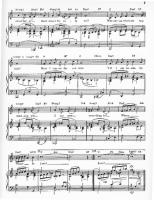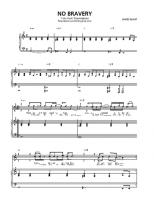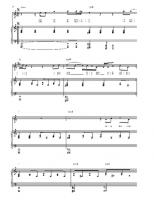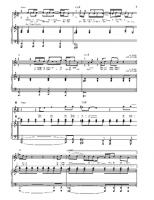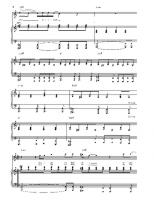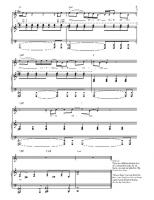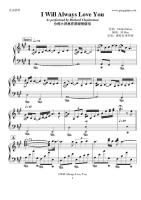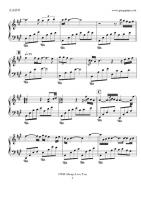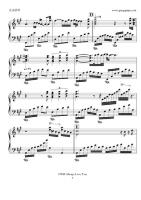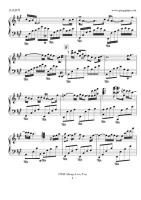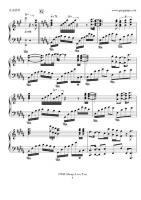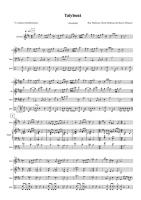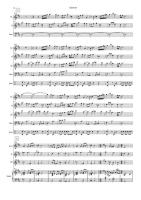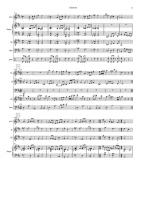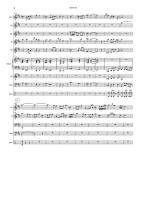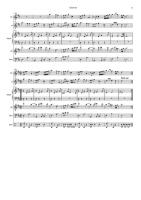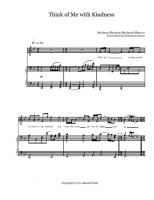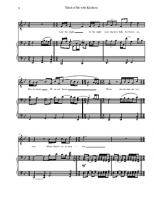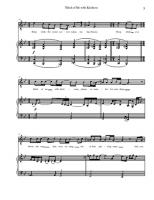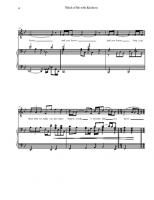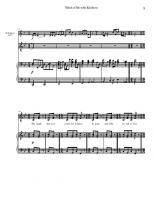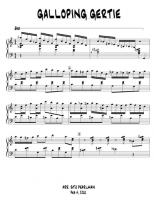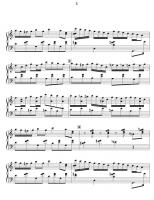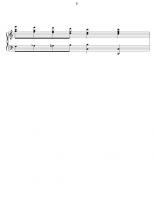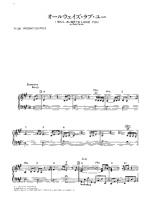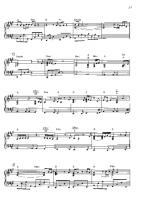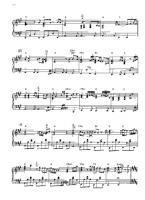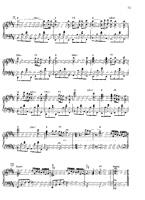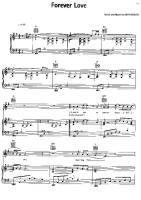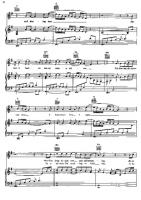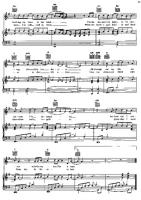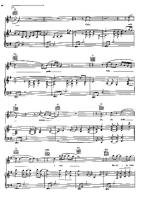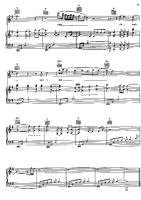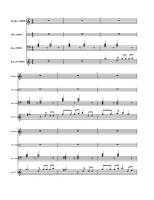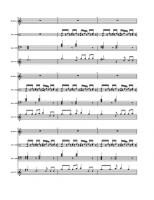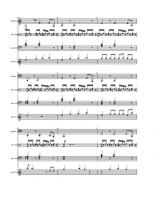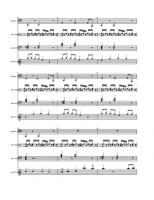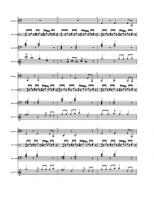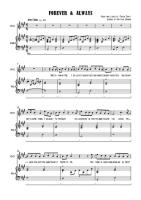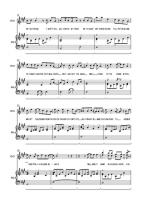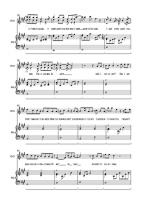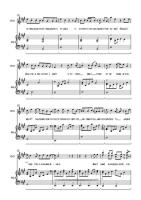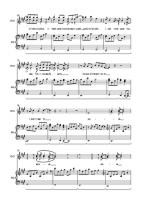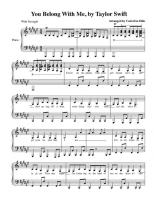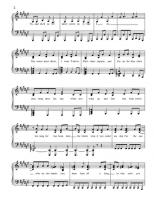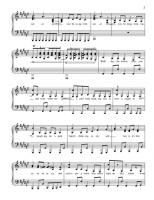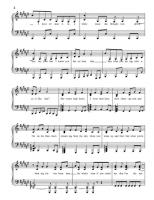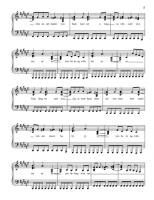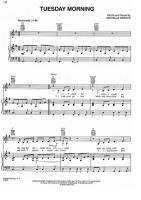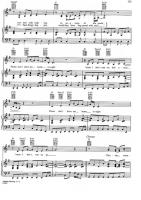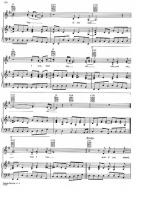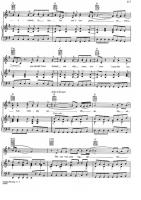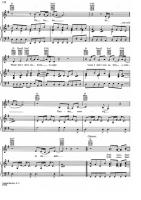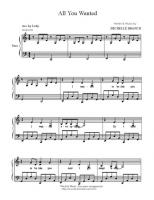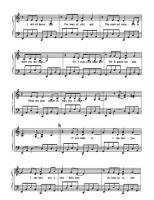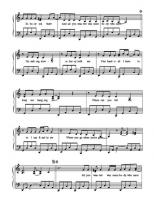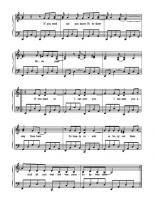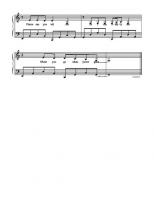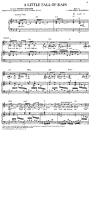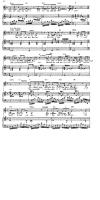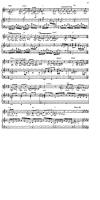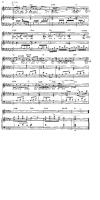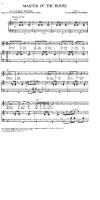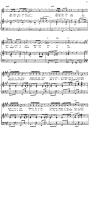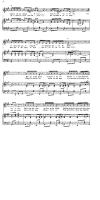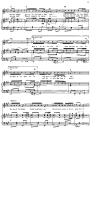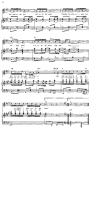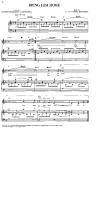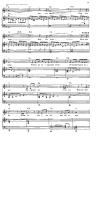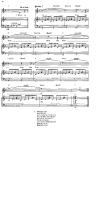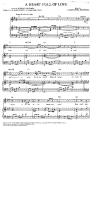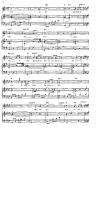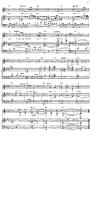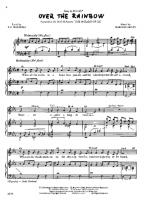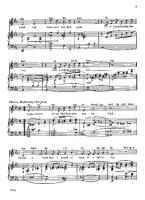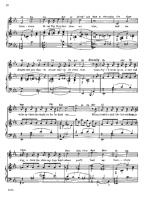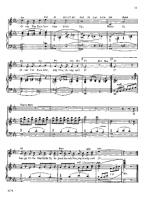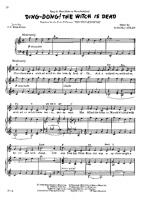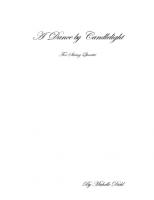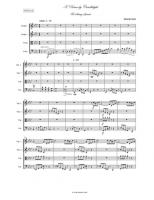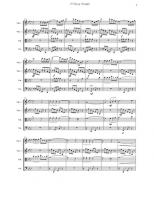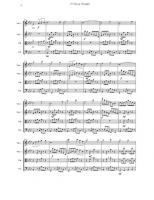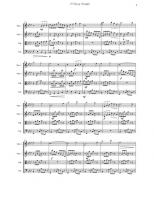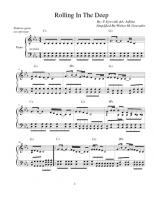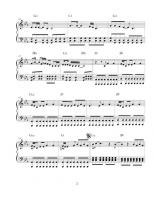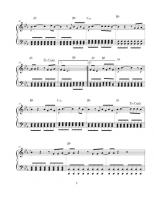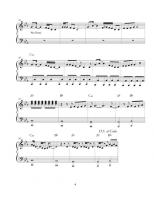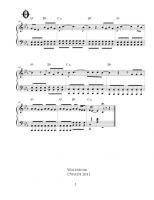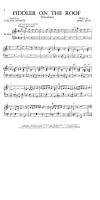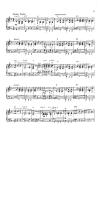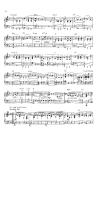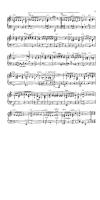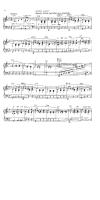Latest Sheets
Hillsong United
The Hillsong United band is an Australian rock and worship band, a part of Hillsong Church's youth ministry Hillsong United. Their music is a contemporary style of praise and worship tempered with mainstream rock.
Current members of the Hillsong United band include Jonathon Douglass (J.D.), Jadwin "Jad" Gillies, Holly Watson, Annie Garratt, Bec Gillies, and Michelle Fragar, daughter of Russell Fragar. Michael Guy Chislett plays guitar and Matthew Tennikoff plays bass guitar. Former original drummer Luke Munns made a transition from the drums to front the rock/indie band LUKAS. Popular New Zealand artist Brooke Fraser recently joined the band when she joined the church, first appearing on United We Stand.
The annual Hillsong United CD/DVD was recorded over many years during their October youth conference Encounterfest, with the album released in the first quarter of the following year. The 2007 album All of the Above was the first album to be fully studio recorded, containing videos of songs on the DVD. The band has toured in a number of countries, leading worship to thousands in North and South America, Europe and Asia.
Current members of the Hillsong United band include Jonathon Douglass (J.D.), Jadwin "Jad" Gillies, Holly Watson, Annie Garratt, Bec Gillies, and Michelle Fragar, daughter of Russell Fragar. Michael Guy Chislett plays guitar and Matthew Tennikoff plays bass guitar. Former original drummer Luke Munns made a transition from the drums to front the rock/indie band LUKAS. Popular New Zealand artist Brooke Fraser recently joined the band when she joined the church, first appearing on United We Stand.
The annual Hillsong United CD/DVD was recorded over many years during their October youth conference Encounterfest, with the album released in the first quarter of the following year. The 2007 album All of the Above was the first album to be fully studio recorded, containing videos of songs on the DVD. The band has toured in a number of countries, leading worship to thousands in North and South America, Europe and Asia.
Henry Mancini
Henry Mancini (April 16, 1924 – June 14, 1994) was an American composer, conductor and arranger. He is remembered particularly for being a composer of film and television scores. Mancini also won a record number of Grammy awards, including a Grammy Lifetime Achievement Award in 1995. His best-known works are the jazz-idiom theme to The Pink Panther film series ("The Pink Panther Theme"), the Peter Gunn Theme (from the so-named series) and "Moon River".
Mancini was nominated for an unprecedented 72 Grammys, winning 20. Additionally he was nominated for 18 Academy Awards, winning four. He also won a Golden Globe Award and was nominated for two Emmys.
Mancini won a total of four Oscars for his music in the course of his career. He was first nominated for an Academy Award in 1955 for his original score of The Glenn Miller Story, on which he collaborated with Joseph Gershenson. He lost out to Adolph Deutsch and Saul Chaplin's Seven Brides for Seven Brothers. In 1962 he was nominated in the Best Music, Original Song category for "Bachelor in Paradise" from the film of the same name, in collaboration with lyricist Mack David. That song did not win. However, Mancini did receive two Oscars that year: one in the same category, for the song "Moon River" (shared with lyricist Johnny Mercer), and one for "Best Music, Scoring of a Dramatic or Comedy Picture" for Breakfast at Tiffany's. The following year, he and Mercer took another Best Song award for "Days of Wine and Roses," another eponymous theme song. His next eleven nominations went for naught, but he finally garnered one last statuette working with lyricist Leslie Bricusse on the score for Victor/Victoria, which won the "Best Music, Original Song Score and Its Adaptation or Best Adaptation Score" award for 1983. All three of the films for which he won were directed by Blake Edwards. His score for Victor/Victoria was adapted for the 1995 Broadway musical of the same name.
Mancini was nominated for an unprecedented 72 Grammys, winning 20. Additionally he was nominated for 18 Academy Awards, winning four. He also won a Golden Globe Award and was nominated for two Emmys.
Mancini won a total of four Oscars for his music in the course of his career. He was first nominated for an Academy Award in 1955 for his original score of The Glenn Miller Story, on which he collaborated with Joseph Gershenson. He lost out to Adolph Deutsch and Saul Chaplin's Seven Brides for Seven Brothers. In 1962 he was nominated in the Best Music, Original Song category for "Bachelor in Paradise" from the film of the same name, in collaboration with lyricist Mack David. That song did not win. However, Mancini did receive two Oscars that year: one in the same category, for the song "Moon River" (shared with lyricist Johnny Mercer), and one for "Best Music, Scoring of a Dramatic or Comedy Picture" for Breakfast at Tiffany's. The following year, he and Mercer took another Best Song award for "Days of Wine and Roses," another eponymous theme song. His next eleven nominations went for naught, but he finally garnered one last statuette working with lyricist Leslie Bricusse on the score for Victor/Victoria, which won the "Best Music, Original Song Score and Its Adaptation or Best Adaptation Score" award for 1983. All three of the films for which he won were directed by Blake Edwards. His score for Victor/Victoria was adapted for the 1995 Broadway musical of the same name.
Beethoven
Ludwig van Beethoven (16 December 1770 - 26 March 1827) was a German composer and pianist. He was a crucial figure in the transitional period between the Classical and Romantic eras in Western classical music, and remains one of the most respected and influential composers of all time.
Born in Bonn, then in the Electorate of Cologne (now in modern-day Germany), he moved to Vienna in his early twenties and settled there, studying with Joseph Haydn and quickly gaining a reputation as a virtuoso pianist. Beethoven's hearing gradually deteriorated beginning in his twenties, yet he continued to compose masterpieces, and to conduct and perform, even after he was completely deaf.
Born in Bonn, then in the Electorate of Cologne (now in modern-day Germany), he moved to Vienna in his early twenties and settled there, studying with Joseph Haydn and quickly gaining a reputation as a virtuoso pianist. Beethoven's hearing gradually deteriorated beginning in his twenties, yet he continued to compose masterpieces, and to conduct and perform, even after he was completely deaf.
Dario Marianelli
Dario Marianelli (born June 21, 1963 in Pisa, Italy) is a composer of piano, orchestral, and film music. He has composed the soundtracks for The Brothers Grimm (2005), Pride & Prejudice (2005), and Atonement (2007), the last two for which he received Oscar nominations for Best Achievement in Music Written for Motion Pictures, Original Score. He has won Best Original Score for the score of Atonement at the 80th Academy Awards and Golden Globe Award for Best Original Score. He has collaborated with Joe Wright three times, on Pride & Prejudice, Atonement, and The Soloist.
Jezek
Jaroslav Ježek (September 25, 1906 – January 1, 1942) was a Czech composer, pianist and conductor, author of jazz, classical, incidental and film music.
The Pussycat Dolls
Pussycat Dolls (abbreviated to PCD) are an American girl group and dance ensemble founded by choreographer Robin Antin in 1995 as a burlesque troupe based in Los Angeles. After attracting national attention, Antin eventually negotiated a record deal with Interscope Records in 2003 turning the group into a music franchise, comprising Nicole Scherzinger alongside Carmit Bachar, Melody Thornton, Jessica Sutta, Ashley Roberts and Kimberly Wyatt. Since then the group has developed a global image and commercial brand overseen by Antin, Interscope and various partners. They have diversified into reality television programs, a Las Vegas act and product endorsements amongst other things.
Success as a music group came in 2005 with their first album PCD which debuted at number five in the US producing three successful singles "Don't Cha", "Buttons", and "Stickwitu"; the latter earned the group a Grammy Award nomination. Following the departure of Carmit Bachar in February 2008, the group continued as a quintet and in September of that year they released their second album, Doll Domination, spawning singles "When I Grow Up", "I Hate This Part" and "Jai Ho! (You Are My Destiny)".
Success as a music group came in 2005 with their first album PCD which debuted at number five in the US producing three successful singles "Don't Cha", "Buttons", and "Stickwitu"; the latter earned the group a Grammy Award nomination. Following the departure of Carmit Bachar in February 2008, the group continued as a quintet and in September of that year they released their second album, Doll Domination, spawning singles "When I Grow Up", "I Hate This Part" and "Jai Ho! (You Are My Destiny)".
Van Halen
Van Halen is a hard rock band formed in Pasadena, California in 1972. They enjoyed success from the release of their self titled debut album in 1978. As of 2007 Van Halen has sold more than 80 million albums worldwide and have had the most number one hits on the Billboard Mainstream Rock chart. During the 1980's they also had more Billboard Hot 100 hits than any other hard rock, heavy metal band of the decade. According to the Recording Industry Association of America, Van Halen is the 19th best selling band/artist of all time with sales of over 56 million albums in the USA and is one of five rock bands that have had two albums sell more than 10 million copies in the USA.
In addition to being recognized for success, the band is known for the drama surrounding the exits of former members. The (multiple) exits of singers Sammy Hagar and David Lee Roth were surrounded in controversy and mass press coverage with various contrasting press statements between them and the band. More recently, founding bassist Michael Anthony was kicked out of the band for controversial reasons. Following their 2004 concert tour the band was on a hiatus from the public until September 2006, when new bassist Wolfgang Van Halen's place was confirmed and Roth-reunion rumours began to re-surface coinciding with the band's Rock and Roll Hall of Fame induction on March 12, 2007. After years of speculation, Van Halen began a tour with Roth in late 2007 across North America, which has been extended into 2008. An album is proposed to follow. Along with this, a live tour DVD was announced at their May 13, 2008 concert at the Izod Center that would contain recordings from several performances on their current tour.
Current members:
David Lee Roth – Lead vocals, acoustic guitar
Eddie Van Halen – Guitars, keyboards, bass, backing vocals
Wolfgang Van Halen – Bass, backing vocals
Alex Van Halen – Drums, percussion, backing vocals
In addition to being recognized for success, the band is known for the drama surrounding the exits of former members. The (multiple) exits of singers Sammy Hagar and David Lee Roth were surrounded in controversy and mass press coverage with various contrasting press statements between them and the band. More recently, founding bassist Michael Anthony was kicked out of the band for controversial reasons. Following their 2004 concert tour the band was on a hiatus from the public until September 2006, when new bassist Wolfgang Van Halen's place was confirmed and Roth-reunion rumours began to re-surface coinciding with the band's Rock and Roll Hall of Fame induction on March 12, 2007. After years of speculation, Van Halen began a tour with Roth in late 2007 across North America, which has been extended into 2008. An album is proposed to follow. Along with this, a live tour DVD was announced at their May 13, 2008 concert at the Izod Center that would contain recordings from several performances on their current tour.
Current members:
David Lee Roth – Lead vocals, acoustic guitar
Eddie Van Halen – Guitars, keyboards, bass, backing vocals
Wolfgang Van Halen – Bass, backing vocals
Alex Van Halen – Drums, percussion, backing vocals
Yann Tiersen
Guillaume Yann Tiersen (born 23 June 1970) is a French musician and composer known internationally for composing the score to the Jean-Pierre Jeunet movie Amélie. His music is recognized by its use of a large variety of instruments in relatively minimalist compositions, often with a touch of either European classical music or French folk music, using primarily the piano, accordion or violin together with instruments like the melodica, xylophone, toy piano, ondes martenot, harpsichord and typewriter. His musical style is reminiscent of Frédéric Chopin, Erik Satie, Philip Glass and Michael Nyman.
Daniel Bedingfield
Daniel John Bedingfield (born 3 December 1979) is a New Zealand born British singer-songwriter. He is the brother of pop singers Natasha Bedingfield and Nikola Rachelle.
The Band Perry
The Band Perry, an American country music group, is composed of siblings Kimberly Perry (lead vocals, guitar, piano), Reid Perry (bass guitar, background vocals), and Neil Perry (mandolin, drums, accordion, background vocals). They signed to Republic Nashville in August 2009 and have released four singles: "Hip to My Heart" (November 2009), "If I Die Young" (June 2010), "You Lie" (January 2011), and "All Your Life" (August 2011). All four songs are included on the band's self-titled debut album, released October 12, 2010. "If I Die Young" reached #1 on the Hot Country Songs and Adult Contemporary charts and has been certified quadruple platinum.
Natasha Bedingfield
Natasha Anne Bedingfield (26 November 1981) is an English pop singer and songwriter.
Based in Book St., London, Bedingfield debuted in the 1990s as a member of the Christian dance/electronic group The DNA Algorithm with her siblings Daniel Bedingfield and Nikola Rachelle. Throughout the 1990s and early 2000s, Bedingfield recorded rock and gospel songs for the Hillsong London Church, while Daniel Bedingfield went on to enjoy success with hits “Gotta Get Thru This” and “If You're Not The One”.
Natasha and Daniel share the Guinness World Record for being the only siblings to have had solo number-ones in UK chart history. Similarly, they have each cracked the Top 10 in Australia, United States, Canada and Europe.
Bedingfield recorded her first album Unwritten in 2004. The album contained primarily uptempo pop songs and was influenced by R&B music; it enjoyed international success with over 2.5 million sold worldwide. In 2007, she received a Grammy Award nomination for "Best Female Pop Vocal Performance" for the song "Unwritten". Bedingfield's second album N.B. (2007) yielded the singles "I Wanna Have Your Babies" which was written and produced by Natasha Bedingfield, Wayne Wilkins, Andrew Frampton, and Steve Kipner, "Soulmate" and "Say It Again". Bedingfield has achieved 5 top ten singles in the United Kingdom to date and as of April 2008, she has sold over 10 million singles and albums worldwide.
Based in Book St., London, Bedingfield debuted in the 1990s as a member of the Christian dance/electronic group The DNA Algorithm with her siblings Daniel Bedingfield and Nikola Rachelle. Throughout the 1990s and early 2000s, Bedingfield recorded rock and gospel songs for the Hillsong London Church, while Daniel Bedingfield went on to enjoy success with hits “Gotta Get Thru This” and “If You're Not The One”.
Natasha and Daniel share the Guinness World Record for being the only siblings to have had solo number-ones in UK chart history. Similarly, they have each cracked the Top 10 in Australia, United States, Canada and Europe.
Bedingfield recorded her first album Unwritten in 2004. The album contained primarily uptempo pop songs and was influenced by R&B music; it enjoyed international success with over 2.5 million sold worldwide. In 2007, she received a Grammy Award nomination for "Best Female Pop Vocal Performance" for the song "Unwritten". Bedingfield's second album N.B. (2007) yielded the singles "I Wanna Have Your Babies" which was written and produced by Natasha Bedingfield, Wayne Wilkins, Andrew Frampton, and Steve Kipner, "Soulmate" and "Say It Again". Bedingfield has achieved 5 top ten singles in the United Kingdom to date and as of April 2008, she has sold over 10 million singles and albums worldwide.
Francis Lai
Francis Lai (born April 26, 1932 in Nice, Alpes-Maritimes, France) is a composer noted for his film scores.
While in his twenties, Francis Lai left home and went to Paris where he became part of the lively Montmartre music scene. In 1965 he met filmmaker Claude Lelouch and was hired to help write the score for the film, Un homme et une femme (A Man and A Woman). Released in 1966, the film was a major international success, earning a number of Academy Awards, and for the young Francis Lai, a Golden Globe Award nomination for "Best Original Score". This initial success brought more opportunities to work for the film industry both in his native France as well as in Great Britain and the United States. In 1969, he wrote the score for director René Clément's film, Rider On The Rain (Le Passager de la Pluie).
In 1970 Francis Lai won the Academy Award for Best Music, Original Score and the Golden Globe Award for Best Original Score for the film Love Story. In the United States, the soundtrack album went to No. 2 in the Billboard album charts and the film's theme, "Where Do I Begin" was a hit single with lyrics by Carl Sigman for traditional pop singer Andy Williams. The song would also be recorded successfully by Lai himself with a full orchestra and by Henry Mancini and Shirley Bassey. Francis Lai also wrote the music for the 1978 Love Story sequel titled Oliver's Story.
Lai has also had success with music written for softcore erotic films like Emmanuelle 2 (1975) and Bilitis (1977).
His composition Aujourd'hui C'est Toi is probably best known in the UK as the theme music for the long-running BBC television current affairs documentary series Panorama.
In a career spanning forty years, Francis Lai has also written music for television programs and alone or in collaboration with others has composed music for more than one hundred films and has personally written more than six hundred songs.
While in his twenties, Francis Lai left home and went to Paris where he became part of the lively Montmartre music scene. In 1965 he met filmmaker Claude Lelouch and was hired to help write the score for the film, Un homme et une femme (A Man and A Woman). Released in 1966, the film was a major international success, earning a number of Academy Awards, and for the young Francis Lai, a Golden Globe Award nomination for "Best Original Score". This initial success brought more opportunities to work for the film industry both in his native France as well as in Great Britain and the United States. In 1969, he wrote the score for director René Clément's film, Rider On The Rain (Le Passager de la Pluie).
In 1970 Francis Lai won the Academy Award for Best Music, Original Score and the Golden Globe Award for Best Original Score for the film Love Story. In the United States, the soundtrack album went to No. 2 in the Billboard album charts and the film's theme, "Where Do I Begin" was a hit single with lyrics by Carl Sigman for traditional pop singer Andy Williams. The song would also be recorded successfully by Lai himself with a full orchestra and by Henry Mancini and Shirley Bassey. Francis Lai also wrote the music for the 1978 Love Story sequel titled Oliver's Story.
Lai has also had success with music written for softcore erotic films like Emmanuelle 2 (1975) and Bilitis (1977).
His composition Aujourd'hui C'est Toi is probably best known in the UK as the theme music for the long-running BBC television current affairs documentary series Panorama.
In a career spanning forty years, Francis Lai has also written music for television programs and alone or in collaboration with others has composed music for more than one hundred films and has personally written more than six hundred songs.
Manuel Infante
Manuel Infante (July 29, 1883 – April 21, 1958) was a Spanish composer long resident in France.
A native of Osuna, Infante studied piano and composition with Enrique Morera, and settled in Paris in 1909. While there, he presented numerous concerts of Spanish music; a Spanish nationalist element is predominant in his own works. His most significant music was written for piano, and included 2 suites for two pianos. His works became popular through performances by his countryman José Iturbi, to whom many of them are dedicated.
Infante died in Paris on April 21, 1958.
A native of Osuna, Infante studied piano and composition with Enrique Morera, and settled in Paris in 1909. While there, he presented numerous concerts of Spanish music; a Spanish nationalist element is predominant in his own works. His most significant music was written for piano, and included 2 suites for two pianos. His works became popular through performances by his countryman José Iturbi, to whom many of them are dedicated.
Infante died in Paris on April 21, 1958.
Anonymous
Easy piano sheets to teach kids how to play piano.
The Lion King
The Lion King is a 1994 American animated feature film produced by Walt Disney Feature Animation, released in theaters on June 15, 1994 by Walt Disney Pictures. It is the 32nd film in the Disney animated feature canon. The film was the highest grossing animated film of all time until the release of Finding Nemo (a Disney/Pixar computer-animated film). The Lion King still holds the record as the highest grossing traditionally animated film in history. This film also belongs to an era known as the Disney Renaissance.
The story, which was strongly influenced by the Shakespearean play Hamlet and Disney's 1942 classic Bambi, takes place in a kingdom of anthropomorphic animals in Africa. A musical film, The Lion King garnered two Academy Awards for its achievement in music. Songs were written by composer Elton John and lyricist Tim Rice, with an original score by Hans Zimmer. Disney later produced two related movies: a sequel, The Lion King II: Simba's Pride; and a part prequel-part parallel, The Lion King 1½.
The Lion King: Original Motion Picture Soundtrack is the original motion picture soundtrack for Walt Disney's The Lion King. The songs were written by Elton John and Tim Rice. The original score was composed and arranged by Hans Zimmer. The soundtrack was recorded in three different countries, namely: USA, UK and South Africa.
The story, which was strongly influenced by the Shakespearean play Hamlet and Disney's 1942 classic Bambi, takes place in a kingdom of anthropomorphic animals in Africa. A musical film, The Lion King garnered two Academy Awards for its achievement in music. Songs were written by composer Elton John and lyricist Tim Rice, with an original score by Hans Zimmer. Disney later produced two related movies: a sequel, The Lion King II: Simba's Pride; and a part prequel-part parallel, The Lion King 1½.
The Lion King: Original Motion Picture Soundtrack is the original motion picture soundtrack for Walt Disney's The Lion King. The songs were written by Elton John and Tim Rice. The original score was composed and arranged by Hans Zimmer. The soundtrack was recorded in three different countries, namely: USA, UK and South Africa.
Jerry Lee Lewis
Jerry Lee Lewis (born September 29, 1935) is an American rock and roll and country music singer, songwriter and pianist. An early pioneer of rock and roll music, Lewis was inducted into the Rock and Roll Hall of Fame in 1986 and his pioneering contribution to the genre has been recognized by the Rockabilly Hall of Fame. In 2004, Rolling Stone Magazine ranked him #24 on their list of the 100 Greatest Artists of All Time. In 2003, they listed his box set All Killer, No Filler: The Anthology #242 on their list of "500 greatest albums of all time".
Eric Satie
Éric Alfred Leslie Satie (Honfleur, 17 May 1866 – Paris, 1 July 1925) was a French composer and pianist. Starting with his first composition in 1884, he signed his name as Erik Satie.
Satie was introduced as a "gymnopedist" in 1887, shortly before writing his most famous compositions, the Gymnopédies. Later, he also referred to himself as a "phonometrician" (meaning "someone who measures sounds") preferring this designation to that of "musician", after having been called "a clumsy but subtle technician" in a book on contemporary French composers published in 1911.
In addition to his body of music, Satie also left a remarkable set of writings, having contributed work for a range of publications, from the dadaist 391 to the American Vanity Fair. Although in later life he prided himself on always publishing his work under his own name, in the late nineteenth century he appears to have used pseudonyms such as Virginie Lebeau and François de Paule in some of his published writings.
Satie was a colourful figure in the early 20th century Parisian avant-garde. He was a precursor to later artistic movements such as minimalism, repetitive music, and the Theatre of the Absurd.
Satie was introduced as a "gymnopedist" in 1887, shortly before writing his most famous compositions, the Gymnopédies. Later, he also referred to himself as a "phonometrician" (meaning "someone who measures sounds") preferring this designation to that of "musician", after having been called "a clumsy but subtle technician" in a book on contemporary French composers published in 1911.
In addition to his body of music, Satie also left a remarkable set of writings, having contributed work for a range of publications, from the dadaist 391 to the American Vanity Fair. Although in later life he prided himself on always publishing his work under his own name, in the late nineteenth century he appears to have used pseudonyms such as Virginie Lebeau and François de Paule in some of his published writings.
Satie was a colourful figure in the early 20th century Parisian avant-garde. He was a precursor to later artistic movements such as minimalism, repetitive music, and the Theatre of the Absurd.
Whitney Houston
Whitney Elizabeth Houston (born August 9, 1963) is an American singer, actress, and former fashion model. A relative of several prominent soul singers, including her mother Cissy Houston, cousins Dee Dee and Dionne Warwick and godmother Aretha Franklin, Houston began singing at her New Jersey church as a member of a junior gospel choir at age eleven. After she began performing alongside her mother at night clubs in the New York City area, she was discovered by Arista Records label head Clive Davis.
Houston released her debut album Whitney Houston in 1985, which became the best-selling debut album by a female artist at the time of release. Her second studio album Whitney (1987) became the first album by a female artist to debut at number one on the Billboard 200 albums chart. Houston's crossover appeal on the popular music charts as well as her prominence on MTV enabled several African-American women to follow in her success.
Following her marriage to singer Bobby Brown, Houston appeared in her first starring role in the feature film The Bodyguard in 1992. The film's original soundtrack won the 1994 Grammy Award for Album of the Year. Its lead single, Houston's remake of the 1974 Dolly Parton song "I Will Always Love You", became one of the best-selling singles in music history. Houston continued to star in feature films and contributed to soundtracks including Waiting to Exhale (1995) and The Preacher's Wife (1996). After the release of her fourth studio album My Love Is Your Love (1998), she renewed her recording contract with Arista Records in 2001 for a historic $100 million. She subsequently released her fifth studio album, Just Whitney the following year with One Wish: The Holiday Album being released in 2003. Amidst widespread media coverage of personal and professional turmoil, Houston's marriage to Brown ended in 2006.
Houston is one of the world's best-selling music artists, having sold over 190 million albums and singles worldwide. She is ranked as the fourth best-selling female artist in the United States by the Recording Industry Association of America, with 55 million certified albums. She has been listed by Rolling Stone magazine as one of The 100 Greatest Singers of All Time.
Houston released her debut album Whitney Houston in 1985, which became the best-selling debut album by a female artist at the time of release. Her second studio album Whitney (1987) became the first album by a female artist to debut at number one on the Billboard 200 albums chart. Houston's crossover appeal on the popular music charts as well as her prominence on MTV enabled several African-American women to follow in her success.
Following her marriage to singer Bobby Brown, Houston appeared in her first starring role in the feature film The Bodyguard in 1992. The film's original soundtrack won the 1994 Grammy Award for Album of the Year. Its lead single, Houston's remake of the 1974 Dolly Parton song "I Will Always Love You", became one of the best-selling singles in music history. Houston continued to star in feature films and contributed to soundtracks including Waiting to Exhale (1995) and The Preacher's Wife (1996). After the release of her fourth studio album My Love Is Your Love (1998), she renewed her recording contract with Arista Records in 2001 for a historic $100 million. She subsequently released her fifth studio album, Just Whitney the following year with One Wish: The Holiday Album being released in 2003. Amidst widespread media coverage of personal and professional turmoil, Houston's marriage to Brown ended in 2006.
Houston is one of the world's best-selling music artists, having sold over 190 million albums and singles worldwide. She is ranked as the fourth best-selling female artist in the United States by the Recording Industry Association of America, with 55 million certified albums. She has been listed by Rolling Stone magazine as one of The 100 Greatest Singers of All Time.
Elvis Costello
Elvis Costello (born Declan Patrick MacManus, 25 August 1954) is an English singer-songwriter. He came to prominence as an early participant in London's pub rock scene in the mid-1970s and later became associated with the punk/New Wave genre. Steeped in word play, the vocabulary of Costello's lyrics is broader than that of most popular songs. His music has drawn on many diverse genres; one critic described him as a "pop encyclopedia", able to "reinvent the past in his own image".
Costello has won multiple awards in his career, including a Grammy Award, and has twice been nominated for the Brit Award for Best British Male. In 2003, Elvis Costello & the Attractions was inducted into the Rock and Roll Hall of Fame. In 2004, Rolling Stone ranked Costello number 80 on their list of the 100 Greatest Artists of All Time.
Costello has won multiple awards in his career, including a Grammy Award, and has twice been nominated for the Brit Award for Best British Male. In 2003, Elvis Costello & the Attractions was inducted into the Rock and Roll Hall of Fame. In 2004, Rolling Stone ranked Costello number 80 on their list of the 100 Greatest Artists of All Time.
Linkin Park
Linkin Park is an American rock band from Agoura Hills, California. Since their formation in 1996, the band has sold more than 50 million albums and won two Grammy Awards. They achieved mainstream success with their debut album, Hybrid Theory, which was certified Diamond by the RIAA in 2005. Their following studio album, Meteora, continued the band's success, topping the Billboard 200’s album charts in 2003, and was followed by extensive touring and charity work around the world.
Recognized for their adaptation of the nu metal and rap rock genre into a radio-friendly yet densely-layered style in Hybrid Theory and Meteora, the band moved away from this and explored a variety of other genres in their latest studio album, Minutes to Midnight. The album topped the Billboard charts and had the third best debut week of any album that year. They are also known for their several collaborations, most notably with rapper Jay-Z in their mash-up album Collision Course, and many other artists on Reanimation.
Recognized for their adaptation of the nu metal and rap rock genre into a radio-friendly yet densely-layered style in Hybrid Theory and Meteora, the band moved away from this and explored a variety of other genres in their latest studio album, Minutes to Midnight. The album topped the Billboard charts and had the third best debut week of any album that year. They are also known for their several collaborations, most notably with rapper Jay-Z in their mash-up album Collision Course, and many other artists on Reanimation.
Reba McEntire
Reba Nell McEntire (born March 28, 1955) is an American country music singer, performer and actress. Sometimes referred to as "The Queen of Country", she is known for her lively stage-shows and pop-tinged ballads. She has issued 31 albums, with over 55 million records sold worldwide in her 33-year career. She ranks as the #7 best-selling female artist in all genres.
Reba McEntire was an enormously successful female recording artist in country music in the 1980s and 1990s, during which time she scored 23 number-one hits (she remains second only to Dolly Parton as the female performer with the most number-one country singles over the course of her career - the two are tied for the most Top 10 songs with 56 each) and released five gold albums, six platinum albums, two double-platinum albums, four triple-platinum albums, a quadruple-platinum album, and a quintuple-platinum album, for certified album sales of 33.5 million over the 20-year period. She expanded her activities as an actress in film, on stage, and particularly on television, where she starred in a situation comedy, Reba, which lasted from 2001 to 2007.
Reba McEntire was an enormously successful female recording artist in country music in the 1980s and 1990s, during which time she scored 23 number-one hits (she remains second only to Dolly Parton as the female performer with the most number-one country singles over the course of her career - the two are tied for the most Top 10 songs with 56 each) and released five gold albums, six platinum albums, two double-platinum albums, four triple-platinum albums, a quadruple-platinum album, and a quintuple-platinum album, for certified album sales of 33.5 million over the 20-year period. She expanded her activities as an actress in film, on stage, and particularly on television, where she starred in a situation comedy, Reba, which lasted from 2001 to 2007.
My Fair Lady
My Fair Lady is a musical based upon George Bernard Shaw's Pygmalion and with book and lyrics by Alan Jay Lerner and music by Frederick Loewe. The story concerns Eliza Doolittle, a Cockney flower girl who takes speech lessons from professor Henry Higgins so that she can pass as a lady. Higgins takes credit for Eliza's success, but she realizes that she can now be independent and does not need him.
The musical's 1956 Broadway production was a smash hit, setting a new record for the longest run of any major musical theatre production in history. It was followed by a hit London production, a popular film version, and numerous revivals. It has been called "the perfect musical."
The musical's 1956 Broadway production was a smash hit, setting a new record for the longest run of any major musical theatre production in history. It was followed by a hit London production, a popular film version, and numerous revivals. It has been called "the perfect musical."
X Japan
X Japan is a Japanese band founded in 1982 by Toshimitsu "Toshi" Deyama and Yoshiki Hayashi. Originally named X, the group achieved its breakthrough success in 1989 with the release of their second album Blue Blood. They started out as a power/speed metal band and later gravitated towards a progressive sound, at all times retaining an emphasis on ballads. After three more albums, X Japan disbanded in 1997.
Besides being one of the first Japanese acts to achieve mainstream success while on an independent label, the group is widely credited for pioneering the visual kei movement, though most of the group's members toned down their on-stage attire in later years. They were formerly known for their excessively large hairstyles resembling fountains. As of 2007, the band has sold over twenty million records and over two million home videos.
On 4 June 2007 it was announced the band would reunite with a new song released via digital download in January 2008 and live performances scheduled for March and May.
Besides being one of the first Japanese acts to achieve mainstream success while on an independent label, the group is widely credited for pioneering the visual kei movement, though most of the group's members toned down their on-stage attire in later years. They were formerly known for their excessively large hairstyles resembling fountains. As of 2007, the band has sold over twenty million records and over two million home videos.
On 4 June 2007 it was announced the band would reunite with a new song released via digital download in January 2008 and live performances scheduled for March and May.
Oliver!
Oliver! is a British musical, with music and lyrics by Lionel Bart. It first appeared in the West End in 1960, enjoying a long run, and was made into a film directed by Carol Reed in 1968.
The musical is loosely based upon the novel Oliver Twist by Charles Dickens. That it was the first musical adaptation of a Charles Dickens work to become a stage hit was one of the reasons why it attracted such attention. There had been two previous Dickens musicals in the 1950s, both of them television adaptations of A Christmas Carol, but the dramatic story of Oliver Twist was the first Dickens work to be presented as a successful stage musical. Another reason for the success of the musical was the revolving stage set, an innovation designed by Sean Kenny.
The show launched the careers of several child actors, including Davy Jones, later of The Monkees; Phil Collins, later of Genesis; and Tony Robinson, who later played the role of Baldrick in the television series Black Adder. The singer Steve Marriott (Small Faces, Humble Pie) also featured in early line-ups, eventually graduating to the role of Artful Dodger in the West End production.
The plot of Dickens's original novel is considerably simplified for the purposes of the musical, with Fagin being represented more as a comic character than as a villain, and large portions of the latter part of the story being completely left out. Although Dickens' novel has been called antisemitic in its portrayal of the Jew Fagin as evil, the production by Bart (himself a Jew) featured many Jewish actors in leading roles: Ron Moody (Ronald Moodnik), Georgia Brown (Lilian Klot), and Martin Horsey.
The musical is loosely based upon the novel Oliver Twist by Charles Dickens. That it was the first musical adaptation of a Charles Dickens work to become a stage hit was one of the reasons why it attracted such attention. There had been two previous Dickens musicals in the 1950s, both of them television adaptations of A Christmas Carol, but the dramatic story of Oliver Twist was the first Dickens work to be presented as a successful stage musical. Another reason for the success of the musical was the revolving stage set, an innovation designed by Sean Kenny.
The show launched the careers of several child actors, including Davy Jones, later of The Monkees; Phil Collins, later of Genesis; and Tony Robinson, who later played the role of Baldrick in the television series Black Adder. The singer Steve Marriott (Small Faces, Humble Pie) also featured in early line-ups, eventually graduating to the role of Artful Dodger in the West End production.
The plot of Dickens's original novel is considerably simplified for the purposes of the musical, with Fagin being represented more as a comic character than as a villain, and large portions of the latter part of the story being completely left out. Although Dickens' novel has been called antisemitic in its portrayal of the Jew Fagin as evil, the production by Bart (himself a Jew) featured many Jewish actors in leading roles: Ron Moody (Ronald Moodnik), Georgia Brown (Lilian Klot), and Martin Horsey.
James Blunt
James Blunt (born James Hillier Blount, February 22, 1974) is an English singer-songwriter whose debut album, Back to Bedlam, and single releases — especially the number one hit "You're Beautiful" — brought him to fame in 2005. His style is a mix of pop, rock and folk. Along with vocals, James Blunt performs a variety of instruments, including piano and guitar. He is signed to Linda Perry's independent American label Custard Records. Blunt won two BRIT Awards and two Ivor Novello Awards, and was nominated for five Grammy Awards in 2006. Blunt subsequently released his second album, All The Lost Souls, in 2007; this album was certified gold within its first week of release. The first single from his second album, "1973", was Blunt's first Global Number 1 in October 2007, beating "You're Beautiful" which peaked at Number 2 in the United World Chart.
Prior to embarking on a career in music, Blunt was an officer in the Life Guards, a reconnaissance regiment of the British Army, and served under NATO in Kosovo during the conflict in 1999. While posted to Kosovo, Blunt was introduced to the work of Médecins sans Frontières (MSF) (Doctors Without Borders), a humanitarian aid group best known for its emergency medical care in conflict-torn regions. Since then, Blunt has supported MSF by holding meet-and-greet auctions at many of his concerts.
Blunt's primary residence is now on the Spanish island of Ibiza, where he wrote many of the songs on his second album.
Prior to embarking on a career in music, Blunt was an officer in the Life Guards, a reconnaissance regiment of the British Army, and served under NATO in Kosovo during the conflict in 1999. While posted to Kosovo, Blunt was introduced to the work of Médecins sans Frontières (MSF) (Doctors Without Borders), a humanitarian aid group best known for its emergency medical care in conflict-torn regions. Since then, Blunt has supported MSF by holding meet-and-greet auctions at many of his concerts.
Blunt's primary residence is now on the Spanish island of Ibiza, where he wrote many of the songs on his second album.
Richard Clayderman
Richard Clayderman (born Philippe Pagès on December 28, 1953, Paris) is a French pianist who has released numerous albums including the original compositions by Paul de Senneville and Olivier Toussaint, and instrumental renditions of popular music, rearrangements of movie sound tracks, ethnic music, and easy-listening arrangements of most popular works of classical music.
In 1976 he was invited from Olivier Toussaint a French record producer and his partner Paul de Senneville to record a gentle piano ballad. Paul de Senneville had composed this ballad as a tribute to his new born daughter “Adeline”. The 23 year old Philippe Pagès was auditioned along with 20 other pianists. They liked his special and soft touch on the keyboards combined with his good looks and fine personality, and finally he got the job.
Philippe Pagès' name was changed to Richard Clayderman (he adopted his great-grandmother's last name to avoid mispronunciation of his real name outside France), and the single took off, selling an astonishing 22 million copies in 38 countries. It was called Ballade pour Adeline.
In 1976 he was invited from Olivier Toussaint a French record producer and his partner Paul de Senneville to record a gentle piano ballad. Paul de Senneville had composed this ballad as a tribute to his new born daughter “Adeline”. The 23 year old Philippe Pagès was auditioned along with 20 other pianists. They liked his special and soft touch on the keyboards combined with his good looks and fine personality, and finally he got the job.
Philippe Pagès' name was changed to Richard Clayderman (he adopted his great-grandmother's last name to avoid mispronunciation of his real name outside France), and the single took off, selling an astonishing 22 million copies in 38 countries. It was called Ballade pour Adeline.
Gentle Giant
Gentle Giant were a British progressive rock band active between 1970 and 1980. The band was known for the complexity and sophistication of its music and for the varied musical skills of its members. All of the band members, except the first two drummers, were multi-instrumentalists. Although not commercially successful, they did achieve a cult following.
The band's onetime stated aim was to "expand the frontiers of contemporary popular music at the risk of becoming very unpopular," although this stance was to alter significantly with time. While never achieving the commercial heights of progressive rock contemporaries such as Jethro Tull, Genesis, Yes or Emerson, Lake & Palmer, Gentle Giant was considered to be one of the most experimental bands in the genre (as well as one of the most experimental rock bands of the 1970s).
The band's onetime stated aim was to "expand the frontiers of contemporary popular music at the risk of becoming very unpopular," although this stance was to alter significantly with time. While never achieving the commercial heights of progressive rock contemporaries such as Jethro Tull, Genesis, Yes or Emerson, Lake & Palmer, Gentle Giant was considered to be one of the most experimental bands in the genre (as well as one of the most experimental rock bands of the 1970s).
Sam Fonteyn
Sam Fonteyn (born Samuel Soden, c.1925–1991,) was an English composer-pianist whose most significant output was for the Boosey & Hawkes Music Library, for which he composed and recorded countless works. Most are short character pieces for the piano with colorful titles indicating the images the pieces are meant to conjure. Others are bright orchestral pieces. Fonteyn's work has been heard on television since he recorded for Boosey & Hawkes in the 1970s; his "Pop Looks Bach" is the theme of the long running television programme Ski Sunday, and another music library recording was used as the theme of the British sitcom Please Sir!. His work has been featured recently on SpongeBob SquarePants, Ren & Stimpy, and Family Guy (a vaudeville duo use Fonteyn's "Galloping Gertie" as a vamp in a recurring gag).
Dolly Parton
Dolly Rebecca Parton (born January 19, 1946) is an American singer-songwriter, author, multi-instrumentalist, actress and philanthropist, best known for her work in country music. She starred in the movies 9 to 5, The Best Little Whorehouse in Texas, Steel Magnolias, Straight Talk, Unlikely Angel and Joyful Noise. She is one of the most successful female country artists of all time; with an estimated 100 million in album sales, Dolly Parton is also one of the best selling artists of all time. She is known as "The Queen of Country Music".
Gary Barlow
Gary Barlow (born 20 January 1971) is an English singer-songwriter, pianist and record producer. He is frontman and lead vocalist of pop group Take That and the head judge on the The X Factor. Barlow is one of Britain's most successful songwriters. He has had two Number 1 singles and a Number 1 album as a solo artist, and has had sixteen top 5 hits, eleven Number 1 singles and seven Number 1 albums with Take That. He is also a five-time recipient of the Ivor Novello Award and has sold over 45 million records worldwide with Take That.
Taylor Swift
Taylor Alison Swift (born December 13, 1989) is an American country-pop singer-songwriter. In 2006, she released her debut single "Tim McGraw", which peaked at number six on the Billboard country charts. Later in October 2006, she released her self-titled debut album, which produced five hit singles on the Billboard Hot Country Songs charts and was certified 3× Multi-Platinum by the RIAA. The New York Times described Swift as "one of pop's finest songwriters, country’s foremost pragmatist and more in touch with her inner life than most adults".
According to Nielsen SoundScan, Swift was the biggest selling artist of 2008 in America with combined sales of more than four million albums. Swift's Fearless and her self-titled album finished 2008 at number three and number six respectively, with sales of 2.1 and 1.5 million. She was the first artist in the history of Nielsen SoundScan to have two different albums in the Top 10 on the year end album chart. Fearless has topped the Billboard 200 in 11 non-consecutive weeks. No album has spent more time at number one since 1999-2000. It also was the first album by a female artist in country music history to log eight weeks at #1 on The Billboard 200. In mid-January 2009, Swift became the first country artist to top the 2 million mark in paid downloads with three different songs. As of the week ending February 8, 2009, Swift's single "Love Story" became the country song with most paid downloads in history and the first country song to top the Mainstream Top 40 chart. According to the 2009 issue of Forbes, Swift is ranked as the 69th most powerful celebrity with over $18 million dollars in earnings this year.
According to Nielsen SoundScan, Swift was the biggest selling artist of 2008 in America with combined sales of more than four million albums. Swift's Fearless and her self-titled album finished 2008 at number three and number six respectively, with sales of 2.1 and 1.5 million. She was the first artist in the history of Nielsen SoundScan to have two different albums in the Top 10 on the year end album chart. Fearless has topped the Billboard 200 in 11 non-consecutive weeks. No album has spent more time at number one since 1999-2000. It also was the first album by a female artist in country music history to log eight weeks at #1 on The Billboard 200. In mid-January 2009, Swift became the first country artist to top the 2 million mark in paid downloads with three different songs. As of the week ending February 8, 2009, Swift's single "Love Story" became the country song with most paid downloads in history and the first country song to top the Mainstream Top 40 chart. According to the 2009 issue of Forbes, Swift is ranked as the 69th most powerful celebrity with over $18 million dollars in earnings this year.
Michelle Branch
Michelle Jacquet Branch-Landau (born July 2, 1983) is an American singer, songwriter and guitarist. She made her debut in 2000, and released the platinum-selling albums The Spirit Room and Hotel Paper in August 2001 and June 2003 respectively. During this period, she collaborated with Santana on the single "The Game of Love", which won a Grammy Award. In 2004, she formed the musical duo The Wreckers with fellow musician Jessica Harp. Michelle Branch will release her first solo album with Warner Bros. Nashville, Everything Comes and Goes, in February 2009.
Les Miserables
Les Misérables, colloquially known as Les Mis or Les Miz, is a musical composed in 1980 by the French composer Claude-Michel Schönberg with a libretto by Alain Boublil. Sung through, it is perhaps the most famous of all French musicals and one of the most performed musicals worldwide. On October 8, 2006, the show celebrated its 21st anniversary and became the longest-running West End musical in history and is still running (though it has changed venues).
Among the most famous songs of this Tony award-winning musical are "I Dreamed a Dream", "One Day More", "A Heart Full of Love", "Stars", "Bring Him Home", "Do You Hear the People Sing?", "Master of the House", and "On My Own."
The musical is based on the 1862 novel Les Misérables by Victor Hugo. Set in early 19th century France, it follows the intertwining stories of a cast of characters as they struggle for redemption and revolution. The characters include a paroled convict named Jean Valjean who, failing attempts to find work as an honest man with his yellow ticket of leave, breaks his parole and conceals his identity; the police inspector Javert who becomes obsessed with finding Valjean; Fantine, the single mother who is forced to become a prostitute to support her daughter; Cosette, who eventually falls in love with a French student named Marius Pontmercy. After Fantine dies, Cosette becomes Jean Valjean's adopted daughter; the Thénardiers, the unscrupulous innkeepers who thrive on cheating and stealing; Éponine, their young daughter who is hopelessly in love with Marius; Gavroche, a young beggar boy; and student leader Enjolras who plans the revolt to free the oppressed lower classes of France. The main characters are joined by an ensemble that includes prostitutes, student revolutionaries, factory workers, and others.
Among the most famous songs of this Tony award-winning musical are "I Dreamed a Dream", "One Day More", "A Heart Full of Love", "Stars", "Bring Him Home", "Do You Hear the People Sing?", "Master of the House", and "On My Own."
The musical is based on the 1862 novel Les Misérables by Victor Hugo. Set in early 19th century France, it follows the intertwining stories of a cast of characters as they struggle for redemption and revolution. The characters include a paroled convict named Jean Valjean who, failing attempts to find work as an honest man with his yellow ticket of leave, breaks his parole and conceals his identity; the police inspector Javert who becomes obsessed with finding Valjean; Fantine, the single mother who is forced to become a prostitute to support her daughter; Cosette, who eventually falls in love with a French student named Marius Pontmercy. After Fantine dies, Cosette becomes Jean Valjean's adopted daughter; the Thénardiers, the unscrupulous innkeepers who thrive on cheating and stealing; Éponine, their young daughter who is hopelessly in love with Marius; Gavroche, a young beggar boy; and student leader Enjolras who plans the revolt to free the oppressed lower classes of France. The main characters are joined by an ensemble that includes prostitutes, student revolutionaries, factory workers, and others.
Wizard of Oz
Michelle Diehl
Michelle Diehl (b. 1962, Minneapolis) is a composer who is receiving invitations, commissions and performance opportunities throughout the United States. Equally at home in the solo, symphonic, and chamber music genre, she taps her varied instrumental skills in composing music ranging from tangos to symphonies. A tireless craftsperson, her works embody artisanal attraction to balance and purity. Her works are often lyrically eloquent, rhythmically compelling and appeal on a broad intellectual and emotional spectrum.
Adele
Adele Laurie Blue Adkins (born 5 May 1988 in Enfield, North London), She is the first recipient of the Brit Awards Critics' Choice, which was given to artists who, at the time, had yet to release an album. She debuted at number one with her Mercury Prize nominated debut album 19 in the UK album chart and has since then been certified platinum with sales over 500,000 copies.
Fiddler on the Roof
Fiddler on the Roof is a musical with music by Jerry Bock, lyrics by Sheldon Harnick, and book by Joseph Stein, set in csarist Russia in 1905.
Fiddler on the Roof was originally entitled Tevye. It is based on Tevye and his Daughters (or Tevye the Milkman) and other tales by Sholem Aleichem which he wrote in Yiddish and published in 1894. The story centers on Tevye, the father of five daughters, and his attempts to maintain his family and religious traditions while outside influences encroach upon their lives. He must cope with both the strong-willed actions of his three older daughters—each daughter's choice of husband moves progressively further away from established customs—and with the edict of the Tsar that evicts the Jews from their village.
The musical's title stems from a painting by Marc Chagall, one of many surreal paintings he created of Eastern European Jewish life, often including a fiddler. The Fiddler is a metaphor for survival, through tradition and joyfulness, in a life of uncertainty and imbalance.
The original Broadway production of the show, which opened in 1964, was the first musical to surpass the 3,000 performance mark, and it held the record for longest-running Broadway musical for almost 10 years until Grease surpassed its run. The production earned $1,574 for every dollar invested in it.
The show was highly acclaimed and nominated for ten Tony Awards, winning nine, including Best Musical, score, book, direction and choreography. It spawned four Broadway revivals, a successful 1971 film adaptation, and has enjoyed enduring international popularity. It is also a very popular choice for school and community productions.
Fiddler on the Roof was originally entitled Tevye. It is based on Tevye and his Daughters (or Tevye the Milkman) and other tales by Sholem Aleichem which he wrote in Yiddish and published in 1894. The story centers on Tevye, the father of five daughters, and his attempts to maintain his family and religious traditions while outside influences encroach upon their lives. He must cope with both the strong-willed actions of his three older daughters—each daughter's choice of husband moves progressively further away from established customs—and with the edict of the Tsar that evicts the Jews from their village.
The musical's title stems from a painting by Marc Chagall, one of many surreal paintings he created of Eastern European Jewish life, often including a fiddler. The Fiddler is a metaphor for survival, through tradition and joyfulness, in a life of uncertainty and imbalance.
The original Broadway production of the show, which opened in 1964, was the first musical to surpass the 3,000 performance mark, and it held the record for longest-running Broadway musical for almost 10 years until Grease surpassed its run. The production earned $1,574 for every dollar invested in it.
The show was highly acclaimed and nominated for ten Tony Awards, winning nine, including Best Musical, score, book, direction and choreography. It spawned four Broadway revivals, a successful 1971 film adaptation, and has enjoyed enduring international popularity. It is also a very popular choice for school and community productions.
Search for Free Sheet Music
You can make a search through the entire collection of sheets.
You can make a search through the entire collection of sheets.
Hi, fellow musicians!
There is no registration required to download the sheets but you can subscribe to our mailing list to get notified of new sheets.
There is no registration required to download the sheets but you can subscribe to our mailing list to get notified of new sheets.
Latest Artists
Luigi Denza
× 1
Carl Reinecke × 1
Valter Bresolin × 1
Alan Silvestri × 1
Cat Stevens × 3
X Japan × 2
Bakemonogatari × 1
Michael Jackson × 2
King's Singers × 1
Dolores O'Riordan × 1
Penny Will × 1
József Rieth × 1
Alan Bullard × 1
The Kingston Trio × 1
Mathilde Santing × 1
Alejandro Sanz × 1
Prokofiev × 2
Frida Situmorang × 1
Lucas Allen × 1
Rumbling Hearts × 1
Balakirev × 1
Noten herausgehört von × 1
Friedrich Wieck × 1
Queen × 5
Suzumiya Haruhi No Yuuutsu × 1
Michael Brecker × 1
KARA × 1
Chris Rice × 1
Beach boys × 1
Evencio Castellanos × 1
Final Fantasy VIII × 1
Britney Spears × 3
Luiz Henrique Redner × 1
Mild × 1
Yuki Kajiura × 2
ZUN × 1
Jamiroquai × 1
Ellen & Joost Laninga × 1
Morten Lauridsen × 1
The Carpenters × 2
Raymond Pauls × 1
Morten Luridsen × 1
Nat King Cole × 1
Pasek and Paul × 2
Caitie Searcy × 1
Joe Cocker × 1
Norah Jones × 1
Hector Berlioz × 1
Casablanca × 1
Ravel × 2
Carl Reinecke × 1
Valter Bresolin × 1
Alan Silvestri × 1
Cat Stevens × 3
X Japan × 2
Bakemonogatari × 1
Michael Jackson × 2
King's Singers × 1
Dolores O'Riordan × 1
Penny Will × 1
József Rieth × 1
Alan Bullard × 1
The Kingston Trio × 1
Mathilde Santing × 1
Alejandro Sanz × 1
Prokofiev × 2
Frida Situmorang × 1
Lucas Allen × 1
Rumbling Hearts × 1
Balakirev × 1
Noten herausgehört von × 1
Friedrich Wieck × 1
Queen × 5
Suzumiya Haruhi No Yuuutsu × 1
Michael Brecker × 1
KARA × 1
Chris Rice × 1
Beach boys × 1
Evencio Castellanos × 1
Final Fantasy VIII × 1
Britney Spears × 3
Luiz Henrique Redner × 1
Mild × 1
Yuki Kajiura × 2
ZUN × 1
Jamiroquai × 1
Ellen & Joost Laninga × 1
Morten Lauridsen × 1
The Carpenters × 2
Raymond Pauls × 1
Morten Luridsen × 1
Nat King Cole × 1
Pasek and Paul × 2
Caitie Searcy × 1
Joe Cocker × 1
Norah Jones × 1
Hector Berlioz × 1
Casablanca × 1
Ravel × 2

